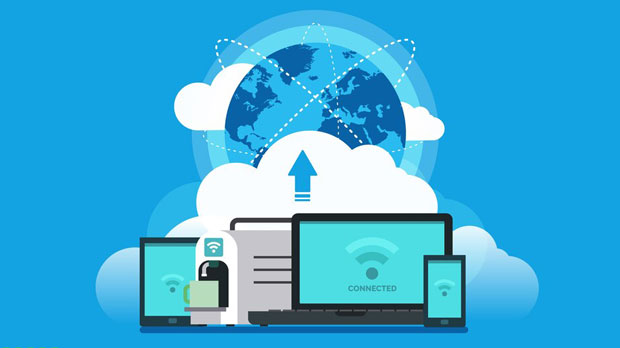In today's digital world, the use of proxy servers has become essential for maintaining privacy, security, and anonymity while browsing the internet. Two popular types of proxies are SOCKS5 and HTTPS proxies, both of which are supported by various proxy management libraries, including PYPROXY. In this article, we will compare these two proxy types in terms of performance, security, and use cases, and provide valuable insights into how they can benefit users. Understanding the key differences between SOCKS5 and HTTPS proxies will help businesses and individuals make informed decisions when selecting the right proxy for their needs. Introduction to Proxy Server List: SOCKS5 vs HTTPSProxy servers act as intermediaries between a user's device and the internet, allowing the user to make requests to websites through the proxy server, which then forwards the request to the website. Proxies are used for various reasons, such as improving security, bypassing geographical restrictions, and masking IP addresses. Among the many types of proxies, SOCKS5 and HTTPS proxies are widely used. SOCKS5 is a versatile proxy that supports a wide range of protocols, while HTTPS proxies are specifically designed to handle secure, encrypted connections. Understanding the technical distinctions and the practical applications of each can greatly impact a user's experience with Pyproxy or any other proxy tool. socks5 proxy: Performance and FlexibilitySOCKS5 (Socket Secure version 5) is an advanced proxy protocol that provides significant flexibility for users. Unlike HTTP proxies, which are designed to work only with web traffic, sock s5 proxies support various protocols, including FTP, SMTP, and even peer-to-peer applications such as BitTorrent. This makes SOCKS5 ideal for users who need to route a broad range of traffic through their proxy.One of the main advantages of SOCKS5 is its low overhead. It doesn't alter or filter the content of requests or responses, allowing for faster speeds compared to other proxies, such as HTTPS. SOCKS5 proxies simply relay the data without inspecting or modifying it, which results in lower latency and improved performance, especially for high-bandwidth activities like video streaming and large file transfers.Additionally, SOCKS5 offers better support for authentication. It allows users to implement password-based authentication methods, ensuring that only authorized individuals can access the proxy server.However, SOCKS5 proxies do not provide encryption by default. This means that while they are suitable for performance-sensitive applications, users must rely on other layers of encryption, such as VPNs or HTTPS, for security. This can be a potential drawback if the user requires strong encryption for sensitive browsing activities.HTTPS Proxy: Security and EncryptionHTTPS proxies, on the other hand, are designed specifically to handle encrypted web traffic. These proxies work with the HTTP protocol and are capable of intercepting and securing communications between the client and the server via SSL/TLS encryption. This makes HTTPS proxies ideal for users who prioritize security and privacy, particularly when dealing with sensitive data, online transactions, or accessing secure websites.The primary advantage of HTTPS proxies is their ability to encrypt the data between the client and the server, ensuring that any sensitive information, such as passwords, personal data, and financial details, remains secure from eavesdropping. This is particularly important for users who need to protect their identity or data from potential cyber threats, especially when using public networks or when working with sensitive applications like online banking.HTTPS proxies also offer support for HTTP and HTTPS traffic, making them the go-to choice for browsing the web securely. However, unlike SOCKS5 proxies, HTTPS proxies are not as flexible, as they can only handle HTTP or HTTPS traffic. This limitation may hinder users who need to route other types of traffic, such as FTP or P2P, through a proxy server.While HTTPS proxies provide encryption, they tend to introduce higher overhead and can be slower compared to SOCKS5 proxies, especially when dealing with large amounts of data. The added encryption and decryption processes can create delays in communication, which might not be ideal for applications requiring high-speed performance.Key Differences: SOCKS5 vs HTTPS ProxyNow that we’ve examined the individual features of SOCKS5 and HTTPS proxies, let’s summarize their key differences:1. Protocol Support: - SOCKS5: Supports a wide range of protocols, including FTP, SMTP, POP3, and even peer-to-peer applications. - HTTPS: Primarily designed to handle HTTP and HTTPS traffic, which limits its use to secure web browsing.2. Security: - SOCKS5: Does not offer encryption by default, meaning that additional security measures, such as VPNs or HTTPS, must be used for data protection. - HTTPS: Provides built-in SSL/TLS encryption, ensuring secure communication between the client and the server.3. Performance: - SOCKS5: Generally offers better performance due to its lower overhead and lack of content inspection. It is more suitable for high-speed applications. - HTTPS: Tends to have higher latency and slower speeds due to encryption processes, which can impact performance in bandwidth-intensive applications.4. Authentication: - SOCKS5: Supports user authentication via usernames and passwords, offering better control over who can access the proxy. - HTTPS: Typically does not require authentication, although it can be configured to do so in some cases.5. Use Cases: - SOCKS5: Ideal for users who need a versatile and high-performance proxy for a variety of protocols and applications. - HTTPS: Best suited for users who prioritize secure web browsing and need to protect sensitive information during online transactions.Practical Considerations for Choosing Between SOCKS5 and HTTPS Proxies in PyproxyWhen deciding between SOCKS5 and HTTPS proxies for use with Pyproxy, several factors should be considered based on the user's specific needs:1. Security vs Performance: If your primary concern is security and privacy, HTTPS proxies are the better option, as they encrypt all data sent between the client and the server. However, if performance is a higher priority—especially for applications requiring fast data transfer speeds—SOCKS5 may be the better choice due to its lower overhead.2. Application Requirements: Consider the type of traffic you plan to route through the proxy. If you're mainly focused on web browsing and accessing secure websites, HTTPS proxies will be sufficient. However, if you need to route other types of traffic, such as FTP, SMTP, or P2P, SOCKS5 will offer more flexibility.3. Network Environment: If you're working in a corporate or large-scale environment where a variety of protocols need to be supported, SOCKS5 proxies may be more suitable due to their versatility. On the other hand, if you're focused on securing web-based communications in a smaller, personal environment, HTTPS proxies may be enough to meet your needs.Conclusion: Making the Right Choice for Your NeedsIn conclusion, both SOCKS5 and HTTPS proxies have their strengths and weaknesses, and the decision between the two depends largely on the user's requirements. SOCKS5 proxies excel in performance and flexibility but lack built-in encryption, making them ideal for non-sensitive, high-speed activities. HTTPS proxies, on the other hand, provide robust encryption and are essential for secure browsing, although they may come at the cost of slower performance.By understanding the core differences between SOCKS5 and HTTPS proxies, users can choose the right proxy type for their specific use case, whether it's for general web browsing, secure communication, or more specialized applications like FTP or P2P. Utilizing Pyproxy with the right proxy configuration can enhance your overall online experience, ensuring that you achieve both the speed and security you need.
Sep 22, 2025



































































